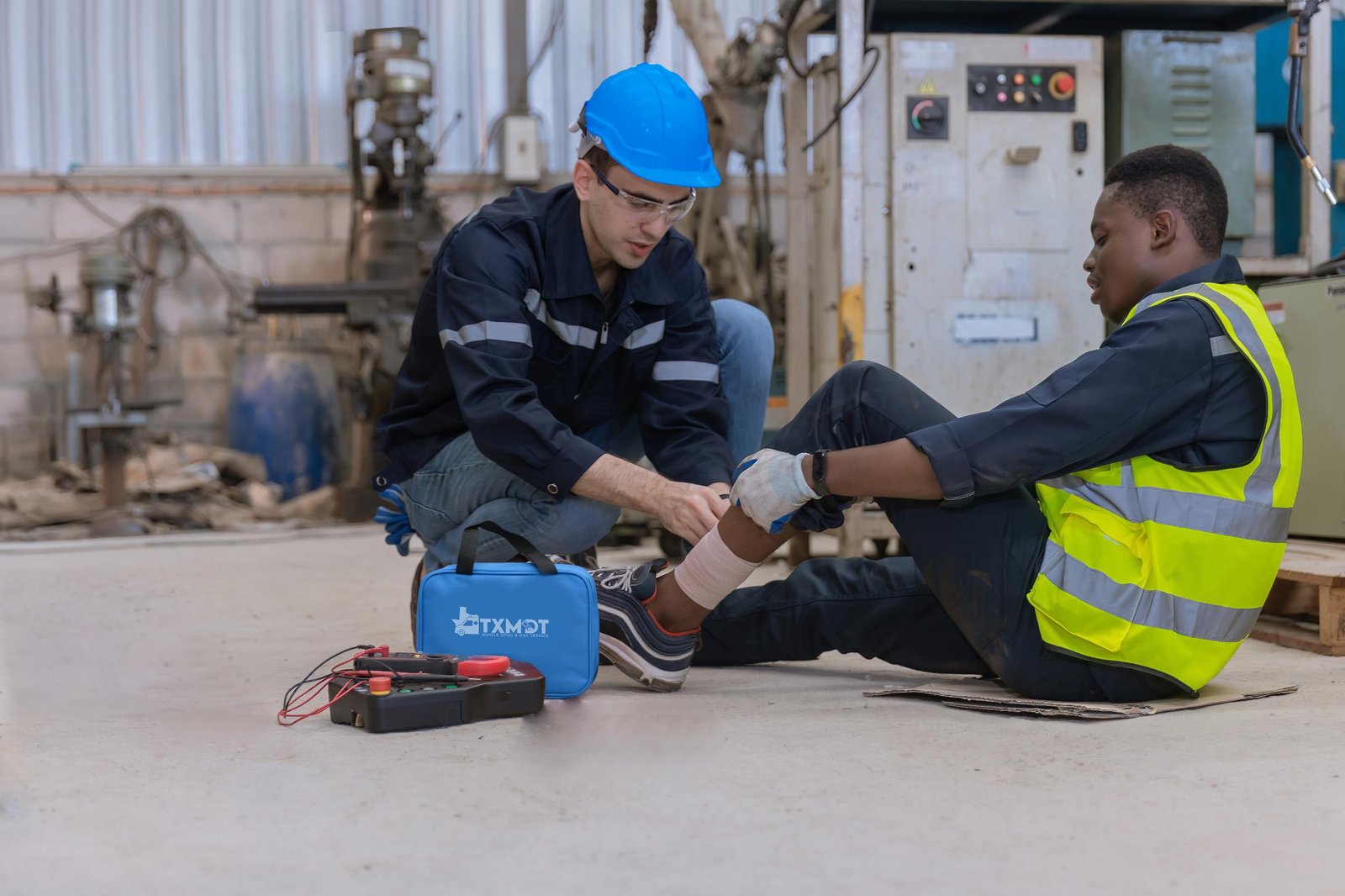
When an accident happens on the job, every minute matters. For Texas employers in industries such as trucking, oil and gas, construction, and logistics, the aftermath of an incident is not only a safety issue but also a legal and financial one. Conducting timely post-accident drug and alcohol testing protects companies from regulatory penalties, preserves insurance claims, and helps determine whether impairment played a role. Fast, defensible testing is an essential part of a professional workplace safety program.
The critical importance of timely testing
Immediate testing matters because federal rules set strict deadlines and because evidence degrades quickly. The Department of Transportation (DOT) requires alcohol testing within two hours of an accident (and no later than eight hours) and drug testing within thirty-two hours for safety-sensitive employees involved in qualifying incidents. If those windows are missed, the ability to prove whether impairment contributed to an accident is diminished, and employers risk fines, driver disqualification, or other penalties. Quick testing gives employers reliable documentation and a defensible record for investigators or insurance adjusters.
DOT timelines and legal stakes
For Texas businesses that employ safety-sensitive workers, DOT post-accident testing is more than a guideline — it is a legal obligation. Accidents involving fatalities, injuries that require medical attention away from the scene, or disabling vehicle damage trigger mandatory testing. Missing DOT timelines can cause regulatory headaches and make it far harder to rebut claims that substance use caused the incident. In legal disputes, prompt testing is often the difference between a resolved claim and a costly lawsuit.
How mobile testing solves Texas logistics
One of the biggest challenges for Texas employers is geography. Job sites can be remote and workers may be traveling long distances when an incident occurs. Transporting an employee to a clinic can push testing past the DOT limit. Mobile drug and alcohol testing services remove that logistical barrier: certified collectors come to the scene, perform urine, saliva, or breath tests onsite, and follow strict chain-of-custody procedures. For companies that operate around the clock or across rural areas, 24/7 mobile testing ensures compliance and preserves the integrity of the results.
Protecting the business: liability, insurance, and reputation
Fast post-accident testing protects a business on multiple fronts. Legally, it provides objective evidence that can reduce liability and help in defending against workers’ compensation or third-party claims. From an insurance standpoint, many carriers expect timely documentation of testing before approving claims; delays can lead to denials or complications. Beyond regulations and insurance, a company’s reputation is also at stake. Clients and partners expect contractors and service providers to have robust safety protocols. Demonstrating immediate post-accident procedures shows a commitment to responsibility and risk management.
Reinforcing a culture of safety
Immediate testing also reinforces a safety-first culture among employees. When workers know that accidents will be followed by prompt testing, it discourages on-the-job substance use and signals that management takes safety seriously. That cultural shift can reduce incidents over time, improve morale, and create a workplace where employees feel protected by clear, consistent policies.
Readiness is everything
Having a post-accident plan is critical. Employers should train supervisors to recognize when testing is required, document every step, and maintain relationships with reliable 24/7 mobile testing providers. Routine drills, clear communication of policies, and up-to-date records all make it easier to respond swiftly when an incident occurs.
FAQs on Post-Accident Drug Testing in Texas
Q1: How soon must post-accident testing be done in Texas?
A: DOT requires alcohol testing within two hours (no later than eight) and drug testing within thirty-two hours of an accident for covered employees.
Q2: What if testing cannot be completed within the required timeframe?
A: Employers should document the reasons for delay. While documentation helps, failure to meet DOT timelines can still result in penalties and may weaken insurance claims.
Q3: Can mobile testing services perform DOT-compliant collections?
A: Yes. Certified mobile providers follow DOT procedures and chain-of-custody protocols to ensure results are legally defensible.
Q4: Is post-accident testing only for DOT-regulated employers?
A: No. While DOT rules apply to safety-sensitive roles, many non-DOT employers adopt post-accident testing to reduce liability and promote safety.
Q5: What substances are typically included in DOT post-accident testing?
A: DOT panels test for marijuana (THC), cocaine, opiates, amphetamines, and PCP; alcohol testing is performed via breath alcohol tests.

